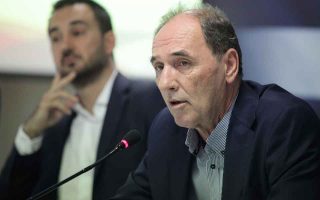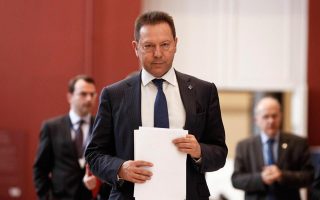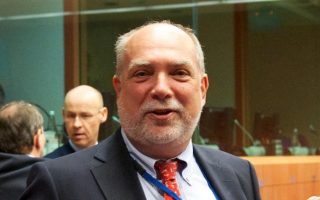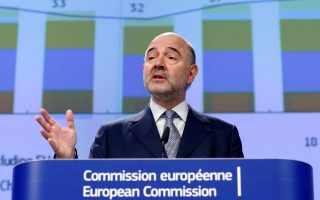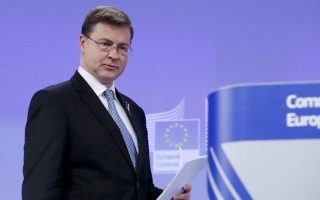Dutch vote puts question mark over Eurogroup chief Dijsselbloem
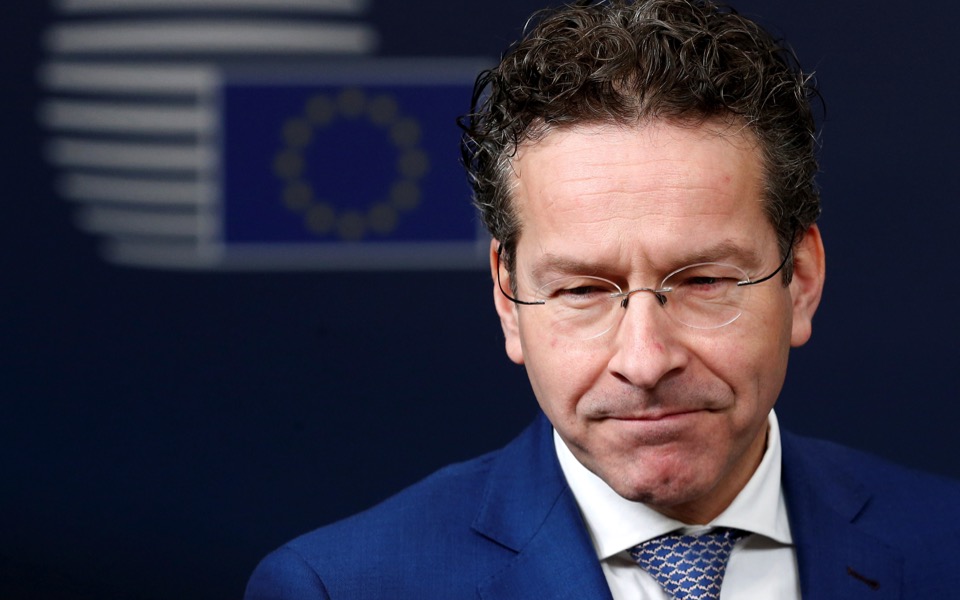
Jeroen Dijsselbloem may have to stand down as president of the Eurogroup which coordinates policy in the eurozone if he cannot retain his role as Dutch finance minister in a new coalition after his party was routed in Wednesday’s election.
The Labor Party crashed from second to seventh place in preliminary results, losing more than three-quarters of its seats and making it hard for victorious liberal Prime Minister Mark Rutte to retain Dijsselbloem in such a senior cabinet post, even though he has made clear his appreciation of his work. Neither man commented on the matter directly Thursday.
Dijsselbloem is due to represent the Eurogroup at a G20 meeting in Germany Friday and to chair the monthly meeting of the 19 eurozone finance ministers in Brussels on Monday.
While other eurozone finance ministers may seek his role, there is a lack of obvious contenders, particularly given that many governments will resist appointing a politician from the right because conservatives hold most other top EU jobs.
It is just possible Dijsselbloem might retain his Dutch portfolio. There has also been speculation that the Eurogroup could keep him on as chairman even if he loses his national job – although some senior officials say that is most unlikely.
Dijsselbloem, whose second 30-month term ends in January, has been popular with fellow ministers, balancing a background on the left with support from conservative Wolfgang Schaeuble, who wields Germany’s power on the Eurogroup and insists on strict terms for Greece and other states awarded bailout loans.
The Dutchman will remain in office for weeks, and possibly months, as Rutte struggles to put together a new coalition after Wednesday’s election. Rutte’s own party lost seats and the anti-immigration party of Geert Wilders finished in second place.
Eurogroup rules do not stipulate that its president must be a serving finance minister. But senior eurozone officials have said lately that they do not believe fellow ministers would keep Dijsselbloem on if he lost his main job in The Hague.
In the longer term, there has been talk of making the position a full-time one, with its own staff. But that is not yet agreed.
Party politics and a quest for influence by governments will play a role in any choice of a replacement for Dijsselbloem.
The Eurogroup chair is one of five key presidencies of European Union institutions governing the euro currency. That of the European Central Bank is held by independent Mario Draghi.
Following a shift at the European Parliament in January and the reappointment last week of Donald Tusk at the European Council of national leaders, all three others, including the executive European Commission, are held by the center-right.
That complicates the longstanding ambition of conservative Spanish Finance Minister Luis de Guindos to replace Dijsselbloem and improves the chances of Slovak leftist Peter Kazimir.
The latter said in January that he believed Dijsselbloem should serve out his term, however the Dutch voted. De Guindos told reporters Thursday he would not speculate on the job. [Reuters]
